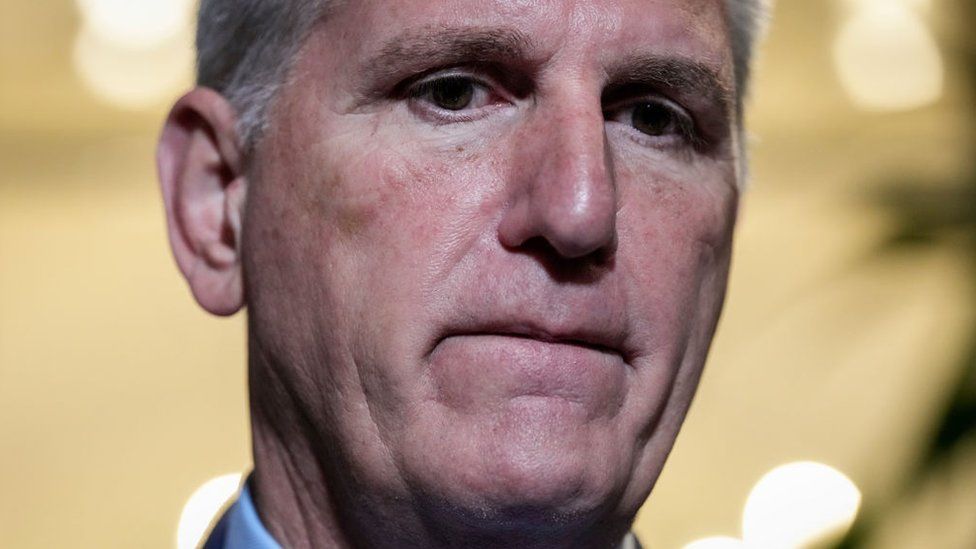-

-
-
Loading

Loading

With less than five days remaining before a potential US government shutdown, Kevin McCarthy, the Speaker of the US House of Representatives, is facing a critical decision. He must find a way to fund federal agencies with his narrow Republican majority or seek support from Democrats to avoid a shutdown. Opting for the former would likely result in a bill that cannot pass a Democrat-controlled Senate, practically guaranteeing a shutdown. On the other hand, if McCarthy chooses the latter option, he risks being ousted from his position, the highest point in his political career. Regardless of his decision, time is quickly running out. If Congress fails to provide funding by Saturday midnight, hundreds of thousands of federal employees will be furloughed without pay, and government services will be disrupted. This situation has been brewing for months, as McCarthy grapples with a growing divide between the moderate and hard-right factions of his caucus. Although the hard-right flank consists of only a handful of lawmakers, they wield an outsized power in a Republican-held chamber with a slim majority of nine seats. These conservatives vehemently oppose the status quo in Washington, demanding spending cuts and conservative priorities. In January, McCarthy faced a prolonged battle to secure their support for the speaker's gavel, enduring 15 rounds of voting before finally winning approval. In June, the country narrowly avoided a potentially disastrous default on its national debt due to hard-liners threatening to derail negotiations unless they obtained concessionary savings. While McCarthy celebrated the eventual passage of a package with significant cuts and savings, some of his members criticized him for relying on more Democratic votes than Republican votes. The current fight involves a small group of ultra-conservatives who are willing to risk a government funding lapse to push for spending cuts. One of their main demands is opposition to further military aid to Ukraine. These hard-liners argue that Russia's invasion of Ukraine has been ongoing for 19 months, and the US Congress has already approved substantial aid to Ukraine. However, most Republican voters oppose additional funding for Ukraine, creating a significant divide within the party. The rebel lawmakers also claim that federal agencies have been weaponized against Republicans by President Joe Biden, advocating for scaled-back funding. Former President Donald Trump is firmly backing these provocative rebels, endorsing a government shutdown unless they achieve all their demands. As the deadline approaches, McCarthy finds himself in a challenging position, relying on the opposing party to help him avoid a shutdown, just as they did during the debt ceiling standoff. However, collaborating with Democrats is likely to trigger a motion to vacate, the initial step in ousting him as speaker. One lawmaker, Congressman Matt Gaetz, has already threatened to bring a motion to vacate if McCarthy strikes a deal. It remains uncertain whether Democrats would support McCarthy in such a scenario, considering his recent impeachment inquiry against President Biden and his clashes with House rivals throughout the year. This is an unwelcome crossroads for McCarthy, a native of Bakersfield, California, who likely never anticipated such a dilemma. Prior to becoming Speaker this year, McCarthy had previously pursued the role eight years ago. When he finally attained the gavel, instantly granting him significant influence in Washington, McCarthy declared: "It's not how you start, it's how you finish." Now, he may be hoping those words do not come back to haunt him.